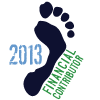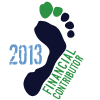ronlavine wrote:
Thanks for the interesting post on orthotic usage.
(my replies in bold here)
I occasionally prescribe and cast for orthotics for my patients. (Though rarely for use when running - most orthotics are too stiff to wear when running, and one gives up too much proprioception) That's fine if that's what you use to help your patients get better. All orthotics, just like footwear, will affect proprioception and kinesthetic sense.
Although I understand in theory the orientation you're espousng (why accomodate to the problem if you can fix it?) I think that you're expressing an idealist's point of view which could at times be tempered. For example, not everyone is equally fanatic about tracking down the minute details of his or her gait pattern to make subtle improvements.I don't think it's fanatic and I think the details are much greater than minute. And I'd also say the improvements are more than subtle - they have to be in order for orthotics to not be needed.
Also, the diagnostic methods you're advocating - muscle testing, posture and gait analysis - though undoubtedly useful, aren't reliable or reproducible, are subject to lots of subjective interpretation, etc. One needs a lot of humility to practice manual therapy, a field in which we know we're doing something legitimate and important, yet in which direct, concrete landmarks are elusive. Aren't reliable? Seriously? If I see a muscle response change and then use that to determine treatment and the patient immediately notices a positive change I'd call that very reliable. Reproducible? - yes actually they are when used by a skilled practitioner. Typically the reliability has been shown to be very high when the skill level is 5+ years of manual muscle testing. Sure, unfortunately there are a lot of bad muscle testers out there and those who use bogus "arm pull-down" testing, but this is not the place to discuss that.
Besides which, holding up the "natural" approach as the gold standard is also elusive and artificial. Is it "natural" to walk on concrete? Wear shoes with a narrow toe box? Why must we confine ourselves to "natural" interventions to deal with modern life? Is it natural to walk on concrete? - It is in our day and time. Though not ideal, we need to adapt, and that's possible. Concrete is just as hard (mabe less than) surfaces many used to and still do walk on. I don't see how that has relevance to a "natural treatment." So you're saying since we don't live in a natural world anymore (but a modern world) then it's okay to use non-natural therapies (ie: orthotics)? Not for me.
Admittedly, I would also have trouble documenting the results I've gotten with orthotics or proving that their use is superior to some other potential intervention. Or showing the reliability or reproducibility of my methods.
I'm just doing the best I can, as I'm sure you are too. That's great. Really. If you take my article as a direct insult to your skills or practice because you use orthotics I am sorry, it is definitely not intended to be that way. The message is that if you're using orthotics for your patients, use them short-term and get them out of an acute phase ASAP and then wean-off so they can strengthen their feet and body again and not be stuck in a life of foot braces.
Ronald Lavine, D.C.
www.yourbodyofknowledge.com



























